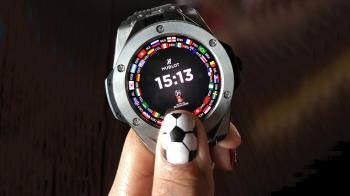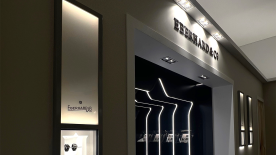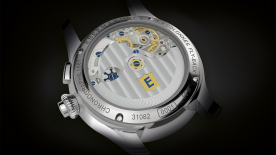Busy readers can save themselves the trouble of reading to the end of this article to find out the verdict: the Big Bang Referee 2018 FIFA World Cup Russia is a winner. The Nyon-based watchmaker, usually so quick off the mark where technical challenges are concerned, opted this time to wait a while before launching its first smartwatch. TAG Heuer and Bulgari – both from the same LVMH stable – brought out theirs some time ago, along with a good proportion of the rest of the watch industry, including pioneer Frédérique Constant.
Patience is a virtue
It was smart of Hublot to wait, even several years. The product they have developed is a good one, although it is unusual in a number of ways. First, it is specific to a single sport: football. This is completely at odds with the general tendency within the industry, which is to aim for the broadest possible sporting palette, copying an approach that has been common in outdoor watches for several years.
The second original feature is that this Big Bang connects only to the 2018 World Cup. For the time being, it can’t be used for any other competition. And the final point is that this watch prides itself on providing real-time results for every match.
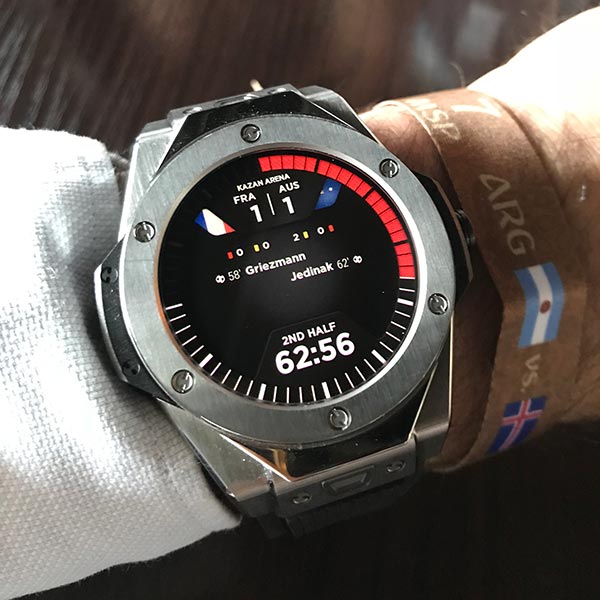
But let’s be clear – at no time during the World Cup are two matches played at the same time, except in the final qualification rounds. The real-time push alerts are therefore not a vital feature, since while you’re watching one match, you’re in no danger of missing another, since there aren’t any others! So the main value of the connected Big Bang lies in its ability to keep you updated about matches you aren’t able to watch at the time.
Something else we picked up during our test is that it’s not precisely “real time”. Exactly 15 seconds elapse between the action on the field of play and the alert on the watch. Haters and doubters will no doubt have a field day with this. But in all fairness, this technology represents a significant first. It works perfectly, and this amount of latency is entirely respectable, given the technical infrastructure it requires.
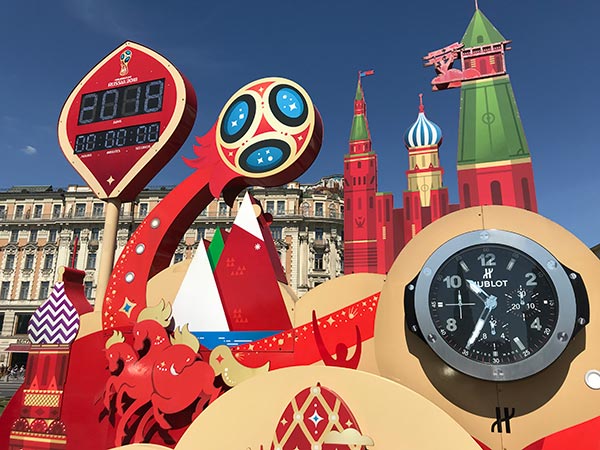
Another undeniable plus point is its appearance. With a diameter of 49 mm it’s no shrinking violet. However, the titanium case ensures it is virtually weightless on the wrist. What’s more, its slender profile enables it to slide easily under a shirt cuff. And let’s face it, if Hublot had made it any smaller, there would have been plenty of people complaining that it was illegible!
Suggestions for version 2
But, while the Big Bang Referee 2018 FIFA World Cup Russia is good, it’s not perfect. When using the “match alerts” function, the watch keeps its charge for over 24 hours, which is a very respectable result. But it would have been nice to have a battery level indicator on the main screen.
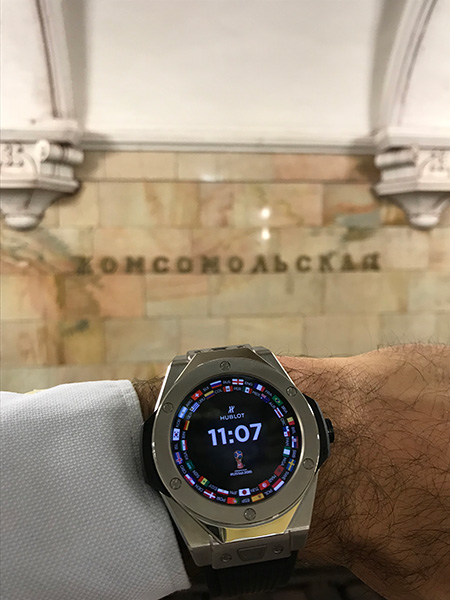
Also, the watch can take a few minutes to pair with a phone that is further than two or three metres away, suggesting that its Bluetooth antenna might be on the weak side. And one final suggestion: quick access to some functions via the crown would be welcome. This could speed up navigation, while adding a more “horological” touch to a watch that, at the end of the day, isn’t really a watch. As yet, Hublot has announced no plans to develop a second smartwatch. But if they do, these lessons might prove useful. Or they could be shared with the other brands in group. TAG Heuer, maybe?
For the 2018 football World Cup, official timekeeper Hublot has teamed up with WorldTempus
to organise a competition for all fans of football and watches.
See what you can win and how to enter
